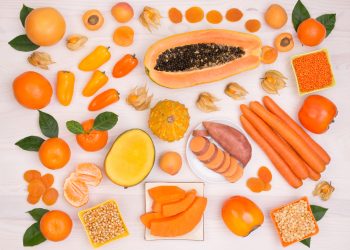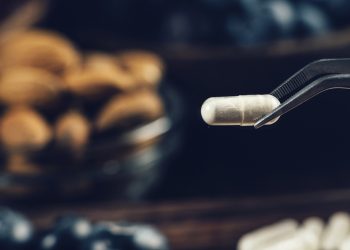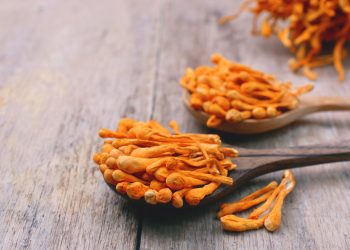When it comes to trying to conceive or get pregnant, organ meats are true superfoods. They’ve been used since ancient times to boost fertility and fuel future generations.
Here’s what you need to know about organ meats, their incredible nutrition profile…and how they can boost fertility the natural way.
- How our ancestors ate to increase fertility
- How vitamin and mineral deficiencies reduce fertility
- How organ meats improve fertility — naturally
- Organ meats: fertility superfoods?
How our ancestors ate to increase fertility
If you’re trying to conceive or trying to get pregnant in 2021, there’s something you should know: the key to doing so healthfully isn’t found in some future discovery or medical breakthrough. It’s actually found by going back.
Our ancestors were maximising their fertility long before modern science discovered the importance of folate during pregnancy — long before anyone knew what a B vitamin was, in fact. Ancient cultures had a highly refined, truly time-tested program for ensuring the health of future mother and child.
At the center of this program? A diet rich in milk, grass-fed animal products, and organ meats.
On a level that somehow transcended the limitations of modern science, our ancestors simply knew that organ meats were a critical catalyst when it came to producing healthy babies.
Sally Fallon, author of Nourishing Traditions, describes this occurrence perfectly: “Without knowing the names of the vitamins contained in these foods, isolated traditional societies recognised their importance in the diet and liberally ate animal products containing them. They rightly believed such foods to be necessary for fertility and the optimum development of children.” [1]
The livers, kidneys, hearts, and other organs of ruminant animals were all viewed as essential fertility foods. Most ancient cultures gave an especially nutrient-dense to women beginning months before they even started trying to conceive! [2]
Liver for fertility
Beef liver is a true fertility superfood. It’s known as ‘nature’s multivitamin’ for a reason; rich in iron, vitamin A, and B vitamins, liver contains many of the things a mother and future child need to thrive.
Take it from native American tribes, who “[put] great emphasis upon the eating of the organs of the animals, including the wall of parts of the digestive tract.” Muscle meat, on the other hand, wasn’t quite as revered. “Much of the muscle meat of the animals was fed to the dogs.” [3]
Other organs for fertility
True to their belief in eating nose to tail, ancestral peoples also valued an animal’s kidney, heart, and other organs. Thyroid glands were also eaten, especially during the winter, when their iodine content would’ve helped one’s metabolism run nice and hot.
For some Northern Indian tribes, thyroid was considered the perfect food for male and female fertility alike:
“Among the Indians in the moose country near the Arctic circle, a larger percentage of the children were born in June than in any other month. This was accomplished, I was told, by both parents eating liberally of the thyroid glands of the male moose as they came down from the high mountain areas for the mating season, at which time the large protuberances carrying the thyroids under the throat were greatly enlarged.” [4]
Our ancestors’ love for organ meats didn’t stop with land animals, either. Many people groups went the extra mile (or extra 300 miles) to provide salmon roe to their mom-to-be. Modern science tells us why: salmon roe contains essential omega 3 fats in a highly bioavailable absorbable form. [5][6]
How vitamin and mineral deficiencies reduce fertility
Unfortunately, modern culture no longer stresses the importance of these traditional fertility foods — and it shows.
Fertility rates have been plummeting for decades now, and the most recent stats imply that fertility problems aren’t slowing down. Up to 20% of British couples today may be struggling with infertility. [7]
One of the most obvious causes of infertility is nutrient deficiencies. These deficiencies allow your body to persist in a state of chronic, low-grade inflammation that directly reduces fertility rates. [8]
Research from Purdue University in Indiana has shown that many pregnant women are missing essential nutrients — despite the fact that most of them are taking prenatal vitamins. [9] Here’s what many of the women studied were deficient in:
- Vitamin D
- Vitamin C
- Vitamin A
- Vitamin K
- Vitamin B-6
- Vitamin E
- Iron
- Folate
- Calcium
- Potassium
- Choline
…And possibly more. A significant portion of the women studied had particularly low levels of vitamin D, vitamin E, magnesium, and iron. Perhaps it’s no surprise that so many women today are struggling to conceive!
Folate deficiency
Folate deficiency is one of the most dangerous deficiencies for a pregnant woman to have. Thankfully, its symptoms are usually obvious. They include:
- Pale, sickly skin
- Weak appetite
- Increased irritability
- Low energy / high fatigue
- Smooth and/or tender tongue
- Diarrhea or other bowel problems [10]
During pregnancy, folate deficiencies increase the future child’s risk of neural tube defects, neurological problems, or paralysis. [11]
Vitamin K2 deficiency
Vitamin K2 deficiency is another unfortunately common vitamin deficiency. Folate’s importance for future moms and their children might be relatively common knowledge, but vitamin K2’s importance isn’t.
Recent research tells us why: K2 deficiencies are easy to develop and tricky to notice. They also set one’s future child up for potential skeletal and structural problems down the line. It turns out that vitamin K2 is essential for shuttling calcium and other bone-builders to the right places. [12]
Making matters more challenging, infants born with K2 deficiency may not be able to reach healthy K levels through breastmilk alone. [13] The easiest way to prevent this type of situation is ensuring pregnant women stay K2-replete throughout the entire course of their pregnancy.
Post-birth intake matters, too: some studies have found that taking just 5 milligrams of vitamin K per day was enough to elevate breastmilk levels. [14]
How organ meats improve fertility — naturally
Organ meats provide a simple, safe, natural antidote for the above nutrient deficiencies. In doing so, they provide a perfect way to maximise your fertility without taking drugs or hormones!
Organ meats are fertility superfoods that are chock-full of vitamins, minerals, essential fats, and amino acids…all in a form that your body actually recognises and absorbs. [15] These natural ingredients are a recipe for success when it comes to enhancing fertility in both genders.
Below are just a few of the many nutritional highlights of organ meats.
Folate/B12
Folate is an essential B vitamin that assists with DNA production, cellular division, and nerve protection. Folate is especially important for pregnant mothers, since the developing fetus requires lots of it. Beef liver is the best source of vitamin B12 in existence. [16]
Iron
While everyone knows that iron is critical for building healthy blood, not many know that the iron in food comes in two distinctive forms. Organ meats contain the more absorbable form, heme iron. Research shows your body can absorb up to 35% of the heme iron you ingest. Iron helps keep the energy-hungry fetus perfectly oxygenated. [17][18]
Vitamin A (retinol)
Organ meats are rich in several different types of vitamin A, including beta carotene and preformed vitamin A. These vitamins are important for healthy vision, clear skin, and normal cellular differentiation. [19]
(Liver is so high in carotenoids, in fact, that pregnant or soon-to-be pregnant mums shouldn’t consume it every day.) [20]
CoQ10
Coenzyme Q10 is another important fertility nutrient that’s readily available in organ meats. CoQ10 antioxidant capabilities mean it can protect both sperm and egg from oxidative or inflammatory stress.
Considering that the amount of CoQ10 your body can produce begins dropping in your 20s or 30s, older prospective parents would be wise to include this important coenzyme in their diet. [21]
Antioxidants
Organ meats are rich in other pro-fertility nutrients, too. Many organ meats contain vitamin E — and some even contain vitamin C! These antioxidants lower inflammation, improve stress tolerance, and promote natural fertility. [22]
Detoxification compounds
Not to sound woo-woo or anything, but detoxification is a critical part of the overall health and wellness puzzle.
In a perfect environment, your liver would handle all needed detox processes with ease.
Today’s environment, however, is anything but ideal. Our bodies are bombarded with toxins on a nearly continual basis. Toxic chemicals like glyphosate can be found in our food and water supply. Glyphosate disrupts the glycine pathways that our bodies use to make collagen and other important structural elements. Unfortunately, glyphosate has been found in the breastmilk of 80% of nursing Brazilian women. [23]
Now for some good news: organ meats can help your body get the detox it needs.
They’re rich in lipotropics that help clear fats and toxins out of your liver. [24] Organs like beef liver are also rich in cytochrome P450, an important class of enzymes that promotes your own liver’s detoxification abilities. [25] Eating organic foods and supplementing with beef liver may help reduce your toxic load and keep your detox pathways healthy.
Newly discovered nutrients
Organ meats are also rich in newly discovered types of nutrients. These include peptides, hormone-mimickers, rare growth factors, and more. [26][27]
Beef liver, for example, contains a special “anti-fatigue factor” (not a B vitamin) that remains undiscovered to this day. [28] It’s possible that other organ meats — like kidney, sweetbreads, or heart — also contain unknown fertility-boosting substances. Perhaps modern science still has a few things to learn from the traditional practice of eating organ meats during pregnancy, after all.
Organ meats: fertility superfoods?
When one looks at the stats, it becomes clear that the modern approach to fertility just isn’t working. Many couples today resort to one pricey treatment after the next, all in hopes of accomplishing something that adequate nutrition might’ve done naturally.
Eating a diet that’s low in inflammatory foods and rich in organ meats / organ meat supplements remains the surest way to maximise your fertility and health. If you’re pregnant or trying to become pregnant, don’t neglect these traditional fertility superfoods!








